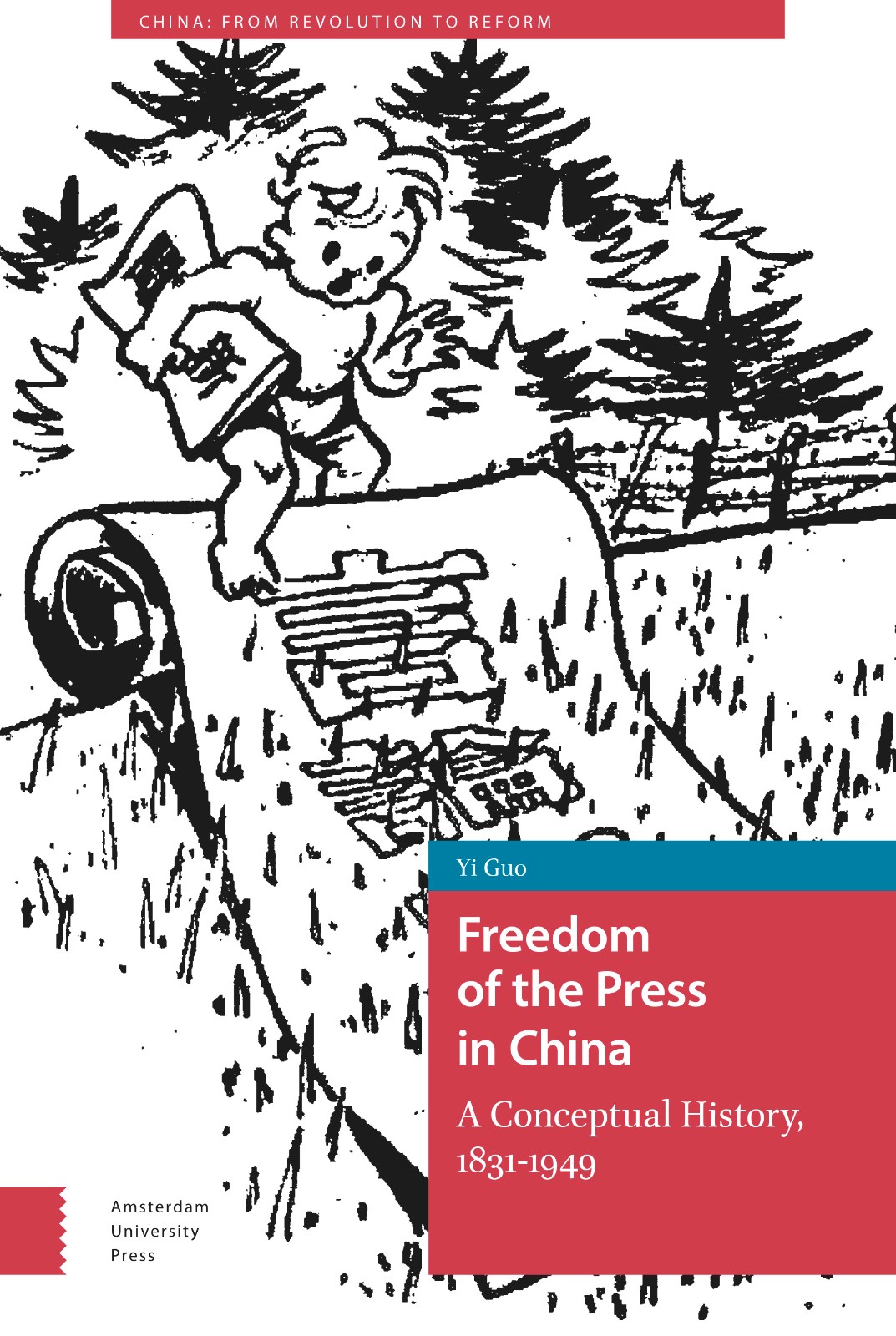Professor
Supervisor of Doctorate Candidates
Supervisor of Master's Candidates
Book
Freedom of the Press in China: A Conceptual History, 1831-1949
Amsterdam University Press, 2020
by Yi Guo
Western commentators have often criticized the state of press freedom in China, arguing that individual speech still suffers from arbitrary restrictions and that its mass media remains under an authoritarian mode. Yet the history of press freedom in the Chinese context has received little examination. Unlike conventional historical accounts which narrate the institutional development of censorship and people’s resistance to arbitrary repression, Freedom of the Press in China: A Conceptual History, 1831-1949 is the first comprehensive study presenting the intellectual trajectory of press freedom. It sheds light on the transcultural transference and localization of the concept in modern Chinese history, spanning from its initial introduction in 1831 to the establishment of the People’s Republic of China in 1949. By examining intellectuals’ thoughts, common people’s attitudes, and official opinions, along with the social-cultural factors that were involved in negotiating Chinese interpretations and practices in history, this book uncovers the dynamic and changing meanings of press freedom in modern China.
More details here: https://www.aup.nl/en/book/9789463726115/freedom-of-the-press-in-china

Reviews & Features
"Guo, one of the foremost representatives of a new generation of Chinese media and historical studies scholars who understands China from the inside while at the same time firmly grounded in the social science theories of Western academia, is eminently suited to tackle this important subject. This illuminating book advances our understanding of a subject of national and international interest. It makes a significant contribution to scholarship that will appeal to a wide audience in the China and Asia Studies fields, including graduate students of media and communication studies and cross-cultural studies as well as history and politics."
- Professor Edmund SK Fung, FAHA
"Yi Guo’s Freedom of the Press in China: A Conceptual History, 1831-1949 is a timely contribution that enhances our understanding of freedom of speech and the press, providing a historical dimension and cultural specificity, namely, China in the first half of the 20th century. [...] The book is a well-researched scholarly work and will appeal to anyone – particularly advanced undergraduate and graduate students – interested in the history of journalism and publishing, intellectual history and social history in modern China."
- Professor Qiliang He , The China Quarterly, 245, March 2021
"This book is a welcome contribution to a broader series of publications from Amsterdam University Press that enhances our grasp of the context and contemporary reality of the People’s Republic of China. As a non-specialist in matters Chinese but an avid supporter of extending understandings of journalism’s history around the world I found this book an absolutely essential contribution to the field. [...] The book has an excellent structure, moving logically from background introduction to a more intensive research focus, at all points drawing upon meticulously resourced primary sources. "
- Professor Martin Conboy, Media History, 27(3), April 2021
" The book weaves deftly between highly technical discussions of language, historiography, narrative history, and analysis of economic and cultural change over the course of China’s ‘century of humiliation’. In doing so, it makes a major contribution to transnational journalism history."
- Professor Mark Hampton, The Journal of Global Intellectual History,13 March 2022
"Under the current troublesome global climate, Yi Guo’s Freedom of the Press in China: A Conceptual History, 1831–1949 makes a timely contribution: It offers a nuanced historical ethnography of the distinctive route taken by China on issues related to press freedom during a period when Chinese intelligentsia and politicians eagerly absorbed and repurposed many Western political thoughts, including those related to press freedom, to search for solutions to free a then poverty- stricken and war-ridden China from both internal conflicts and external aggressions. Through riveting historical accounts, the author shows that this particular phase carries significant relevance to the current state of press freedom in the PRC. Guo offers a nuanced perspective for readers to ponder whether a wholesale borrowing of the Western liberal model of press freedom could actually take hold in contemporary China, especially in the post-truth era. This book is a rigorous historical investigation among a series of recent publications on the press histories of late 19th- and early-20th-century China (see He, 2019; Wang, 2019). Those interested in the fields of China studies, media and communication studies, social histories, and sociolinguistics will find this book to be a fascinating read."
- Liuchang Tan, International Journal of Communication, 16, 2022